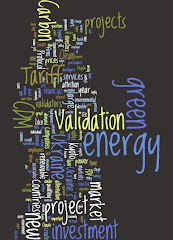
You’re a project owner or developer with a fresh project generating valuable carbon credits under the Kyoto Protocol. Perhaps this is your first project, or maybe you’ve already established your track record in the market.
No matter what your prior experience level, you know that 2012 is fast approaching and you want to obtain the best possible terms for selling your carbon credits. This means locking in a great price before market prices dip farther south. But for some reason whenever you try having serious talks about your project with prospective buyers they give only noncommittal signals of interest.
What is happening? Why are your sales talks hitting road blocks this year, when last year was smooth sailing and you could take your pick of any number of interested buyers from just a few phone calls? You’ve heard the market is getting tough as the 2012 Kyoto deadline approaches, but you’ve got a great project whose carbon credits should be easy to sell. You’re confused.
The recent lack of success may be due in part to your failure to show today’s nervous buyers that you have pre-identified and addressed their main risk areas. This is becoming increasingly important in 2009, as the market seems to be swinging from a seller’s to a buyer’s market. The pre-identification exercise not only allays investors’ fears, it also paints you in a highly positive light as an enlightened and responsible seller.
In order to achieve the best price and avoid painfully drawn out contract negotiations, you should be prepared to answer key questions from the very first serious discussion with a buyer. From the first phone call with a major bank, company or carbon fund, you should know how to respond to the 10 items below… even if you can only give a partial answer.
1. What is the project’s full reference name, host country, and approved baseline methodology number?
2. What documentation stage is the project at (PIN, PDD, validation report etc.)?
3. What approval stage is the project at (FSR, LOE, LOA, Track 1 or UNFCCC registered)?
4. What is the full project owner and project developer name, and what track record do they have for previous carbon projects?
5. What is the financing source for the project’s construction and equipment costs? Is financing complete or secure?
6. When should the project begin validation? Has a time slot been pre-arranged with a particular DOE?
7. When is the expected project commissioning date?
8. When is the expected project registration date?
9. What are the expected annual ERU/CER volumes? What portions of these volumes are available for sale? If not 100%, then who has rights to the remainder and what priority status is the piece available for sale?
10. What are the “get it done” purchase price terms … where if a buyer agrees, you can both cut the small talk and proceed directly into exclusive ERPA contract negotiations?
The best Kyoto Protocol projects are great for the environment but good for your bank account also. If you can answer the 10 questions above, you have an excellent shot to complete a carbon credit sales transaction on your terms and on your timeline.
Good luck, here’s hoping to your success in 2009 and to the success of all carbon credit projects worldwide!
Jon


No comments:
Post a Comment